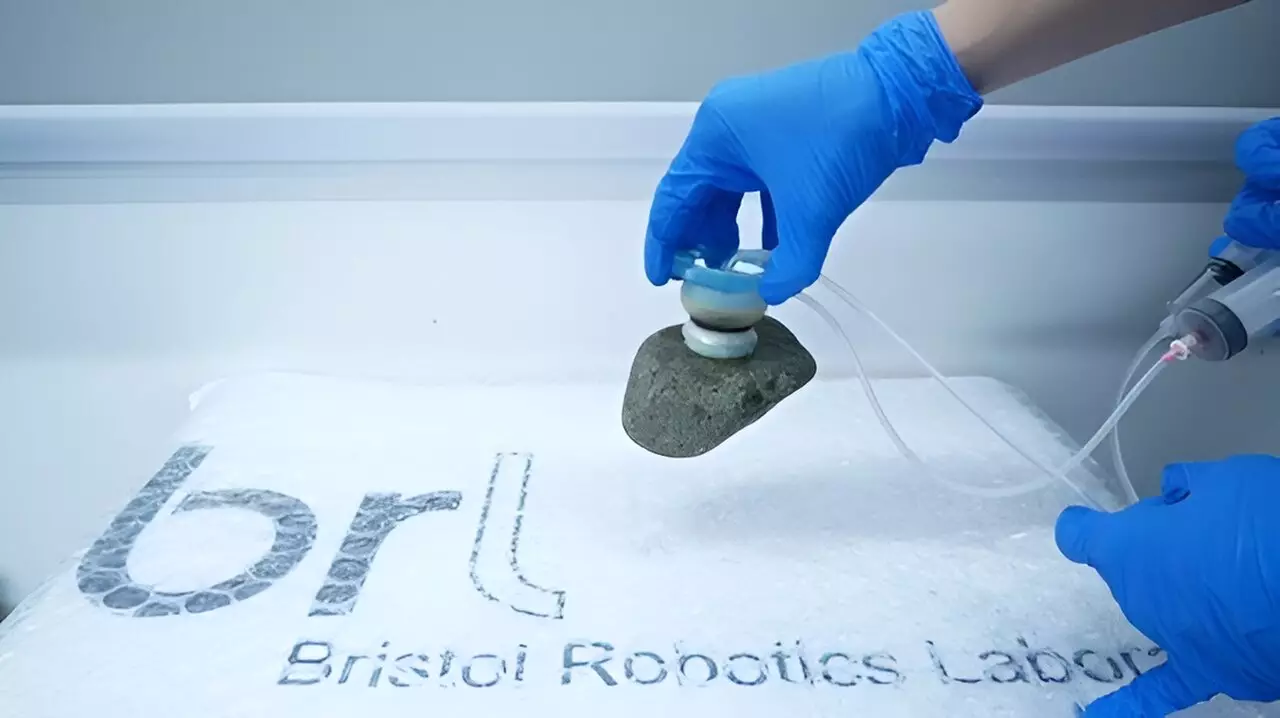Scientists at the University of Bristol have recently developed a groundbreaking robotic suction cup that revolutionizes the way in which robotic devices interact with rough, curved, and heavy surfaces. Inspired by the adaptive suction abilities of octopus biological suckers, the team at Bristol Robotics Laboratory embarked on a mission to create a device capable of anchoring to rock-like structures with ease. This innovative suction cup utilizes a multi-layer soft structure and an artificial fluidic system to mimic the musculature and mucus structures found in biological suckers.
The Science Behind Adaptive Suction
Biological suckers have evolved over time to adaptively attach to dry, complex surfaces such as rocks and shells. This feat has proven to be incredibly challenging for conventional artificial suction cups. The researchers suggest that the key to the adaptive suction of biological suckers lies in the combination of mechanical conformation and liquid seal. By using soft materials to conform to the surface shape and spreading water onto the contacting surface, the suction cup achieves superior adaptability on a variety of surfaces.
The implications of this new multi-scale suction mechanism are far-reaching. Not only does it provide a more effective and efficient alternative to traditional industrial solutions, but it also has the potential to revolutionize the field of soft adhesion technology. The team envisions a future where robotic grippers equipped with this advanced suction cup can grasp a wide range of irregular objects with ease.
As the researchers continue to refine their invention, they plan to embed sensors into the suction cup to further enhance its performance and adaptability. This more intelligent suction cup promises to regulate its behavior autonomously, paving the way for a new era in soft adhesion technology. With the ability to maintain strong grasping on complex surfaces without the need for noisy and energy-wasting air pumps, this innovative suction cup holds great promise for a variety of industrial applications.
The development of this robotic suction cup represents a significant leap forward in the field of soft adhesion technology. By drawing inspiration from nature and combining innovative materials and fluidic systems, the researchers at the University of Bristol have created a device that has the potential to revolutionize the way in which robotic devices interact with challenging surfaces. As they continue to push the boundaries of what is possible, the future looks bright for the integration of this technology into various industrial applications. With further advancements on the horizon, the potential for this revolutionary robotic suction cup to change the landscape of soft adhesion technology is truly remarkable.


Leave a Reply